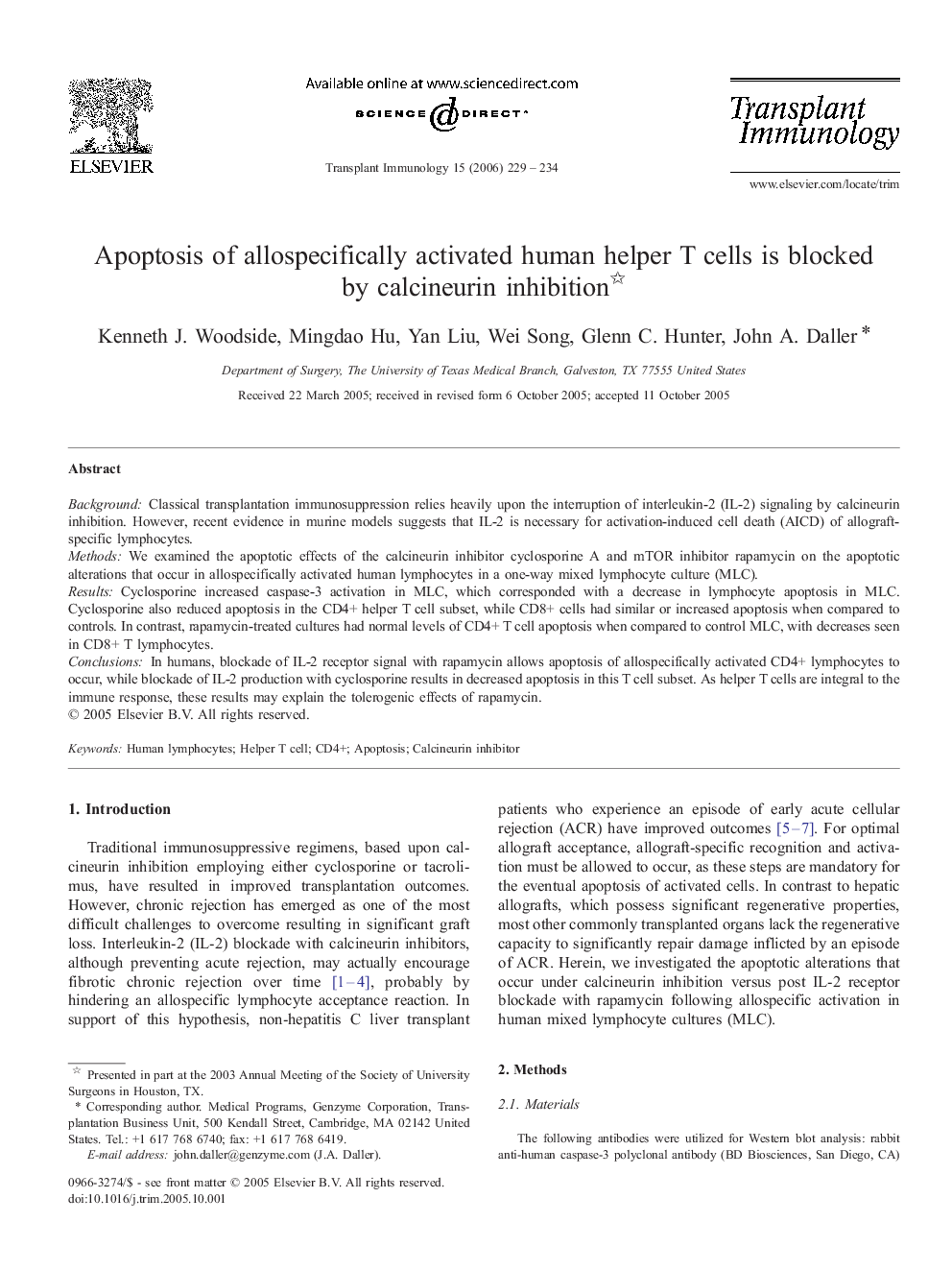| Article ID | Journal | Published Year | Pages | File Type |
|---|---|---|---|---|
| 3392637 | Transplant Immunology | 2006 | 6 Pages |
BackgroundClassical transplantation immunosuppression relies heavily upon the interruption of interleukin-2 (IL-2) signaling by calcineurin inhibition. However, recent evidence in murine models suggests that IL-2 is necessary for activation-induced cell death (AICD) of allograft-specific lymphocytes.MethodsWe examined the apoptotic effects of the calcineurin inhibitor cyclosporine A and mTOR inhibitor rapamycin on the apoptotic alterations that occur in allospecifically activated human lymphocytes in a one-way mixed lymphocyte culture (MLC).ResultsCyclosporine increased caspase-3 activation in MLC, which corresponded with a decrease in lymphocyte apoptosis in MLC. Cyclosporine also reduced apoptosis in the CD4+ helper T cell subset, while CD8+ cells had similar or increased apoptosis when compared to controls. In contrast, rapamycin-treated cultures had normal levels of CD4+ T cell apoptosis when compared to control MLC, with decreases seen in CD8+ T lymphocytes.ConclusionsIn humans, blockade of IL-2 receptor signal with rapamycin allows apoptosis of allospecifically activated CD4+ lymphocytes to occur, while blockade of IL-2 production with cyclosporine results in decreased apoptosis in this T cell subset. As helper T cells are integral to the immune response, these results may explain the tolerogenic effects of rapamycin.
